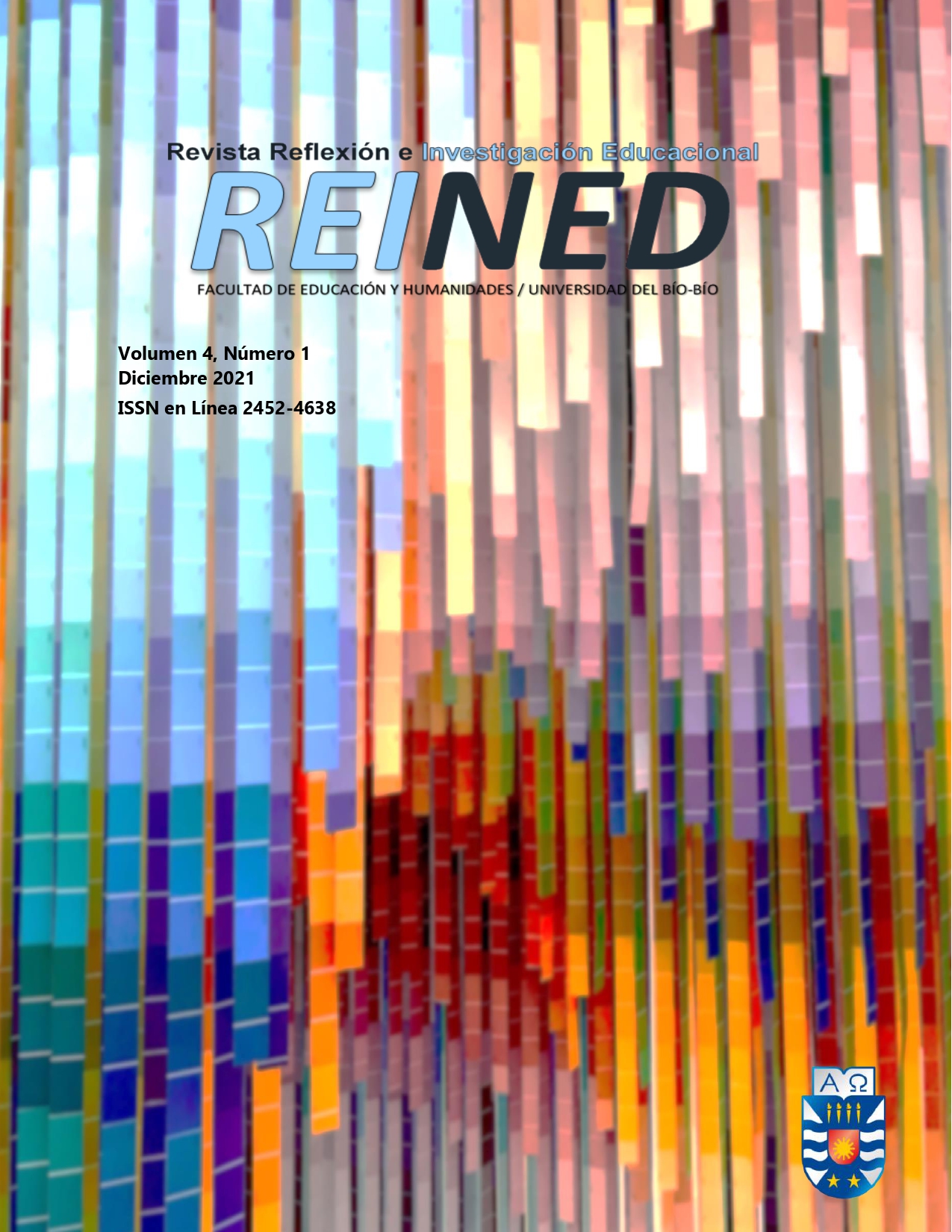Evaluación funcional de la conducta: una herramienta crucial en el diseño de planes de apoyo conductual individualizados
Contenido principal del artículo
Resumen
La Evaluación Funcional de la Conducta (Functional Behavioral Assesment; FBA por su sigla en inglés) es un término genérico para referirse a varios métodos utilizados para identificar variables ambientales que desencadenan y mantienen problemas de conducta. El objetivo de este artículo es exponer acerca de los conceptos implicados en problemas conductuales y lo que ofrece la evaluación funcional de la conducta para un abordaje efectivo en variados contextos. Se utilizó el método de revisión sistemática, profundizando los constructos: evaluación funcional de la conducta y problemas de conducta. Los estudios dan cuenta de la efectividad de la implementación de esta estrategia de prevención/intervención. Finalmente, se discute la necesidad de aplicar este modelo y su implicancia en el diseño de apoyos de planes efectivos y eficaces.
Detalles del artículo
Citas
Anderson, C., Rodríguez, B. & Campbell, A. (2015). Functional Behavior Assessment in schools: current status and future directions. J Behav Educ. 24:338–371. DOI: 10.1007/s10864-015-9226-z DOI: https://doi.org/10.1007/s10864-015-9226-z
Aydin, A. (2000). Classroom management. Turquía: Anı Publishing.
Aydogmus, K. (2010). Parent school. Turquía: Remzi Bookstore
Aykir, T., & Tekinarslan, I. C. (2012). A comparison of social skills and problem behaviors of preschool children with and without mental disability. Kastamonu Education Journal, 20(2), 627-648.
Braguim A., Aguiar, F. & Loureiro S. (2018). Behavioral problems of school children: impact of social vulnerability, chronic adversity, and maternal depression. Psicologia: Reflexao e Crítica. DOI: 10.1186/s41155-018-0089-9 DOI: https://doi.org/10.1186/s41155-018-0089-9
Bruni, T. P., Drevon, D., Hixson, M., Wyse, R., Corcoran, S., & Fursa, S. (2017). The effect of functional behavior assessment on school-based interventions: A meta-analysis of single-case research. Psychology In The Schools, 54(4), 351-369. DOI: https://doi.org/10.1002/pits.22007
Ennis, R. P., Jolivette, K., & Swoszowski, N. C. (2017). Special considerations for using functional behavior assessment and functionally-indicated interventions with students in alternative educational settings. Beyond Behavior, 26(3), 141-151. DOI: https://doi.org/10.1177/1074295617728512
Fienup, D. M., Luiselli, J. K., Joy, M., Smyth, D., & Stein, R. (2013). Functional assessment and intervention for organizational behavior change: Improving the timeliness of staff meetings at a human services organization. Journal Of Organizational Behavior Management, 33(4), 252-264. DOI: 10.1080/01608061.2013.843435 DOI: https://doi.org/10.1080/01608061.2013.843435
Fischer, M., Rolf, J. E., Hasazi, J. E., & Cummings, L. (1984). Follow-up of a preschool epidemiological sample: Cross-age continuities and predictions of later ad- patterns and children’s behavior problems from injustment with internalizing and externalizing dimensions of behavior. Child Development, 55(1), 137-150. DOI: 10.2307/1129840 DOI: https://doi.org/10.2307/1129840
Horner, R. H., Sugai, G., Todd, A. W., & Lewis-Palmer, T. (2005). School-wide positive behavior support. In L. Bambara & L. Kern (Eds.), Individualized supports for students with problem behaviors: Designing positive behavior plans (pp. 359-390). Estados Unidos: Guilford Press.
Lloyd, B., Weaver, E. & Staubitz, J. (2017). Classroom-based strategies to incorporate hypothesis testing in functional behavior assessments. Beyond Behavior, Vol. 26(2) 48-56. Hammill Institute on Disabilities. SAGE: DOI: 0.1177/1074295617711145 DOI: https://doi.org/10.1177/1074295617711145
McIntosh, K., & Av-Gay, H. (2007). Implications of current research on the use of functional behavior assessment and behavior support planning in school systems. International Journal of Behavioral Consultation and Therapy, 3(1), 38-52. DOI: https://doi.org/10.1037/h0100176
McIntosh, K., Brown, J. A., & Borgmeier, C. J. (2008). Validity of functional behavior assessment within a response to intervention framework: Evidence, recommended practice, and future directions. Assessment for Effective Intervention, 34, 6–14. DOI: https://doi.org/10.1177/1534508408314096
Monzalve, M. & Horner, R. H. (2021). The impact of contextual fit enhancement protocol on behavior support plan fidelity and student behavior. Behavioral Disorders, 46(4), 267-278. DOI: 10.1177/0198742920953497 DOI: https://doi.org/10.1177/0198742920953497
Neitzel, J. & Bogin, J. (2008). Steps for implementation: Functional behavior assessment. Chapel Hill, NC: The National Professional Development Center on Autism Spectrum Disorders, Frank Porter Graham Child Development Institute, The University of North Carolina.
Newell R, Burnard P. (2006). Vital notes for nurses: Research for evidence-based practice. Estados Unidos: Wiley Blackwell.
O'Neill, R. E., Albin, R., Storey, K., Horner, R. H. & Sprague, J. R. (2015). Functional assessment and program development for problem behavior: A practical handbook (3rd ed.). Estados Unidos: Brooks/Cole Publishing.
Oram, L., Owens, S., & Maras, M. (2016). Functional behavior assessments and behavior intervention plans in rural schools: An exploration of the need, barriers, and recommendations. Preventing School Failure, 60(4), 305-310. doi:10.1080/1045988X.2016.1144555 DOI: https://doi.org/10.1080/1045988X.2016.1144555
Overskeid, G. (2018). Do we need the environment to explain operant behavior? Frontiers in Psychology, 9, 373. DOI: 10.3389/fpsyg.2018.00373 DOI: https://doi.org/10.3389/fpsyg.2018.00373
Sanz, M. (1994). Psiquiatría del niño y del adolescente. España: Díaz de Santos
Scott, T. M., & Cooper, J. T. (2017). Functional behavior assessment and function-based intervention planning: Considering the simple logic of the process. Beyond Behavior, 26(3), 101-104. DOI: https://doi.org/10.1177/1074295617716113
Shultz, G., Havens, N., Newberry, B. & Burt, J. (2017). You can help every provider have a better understanding of functional behavior assessment! A review of the website: basic FBA to BSP. Hammill Institute on Disabilities, 26(3), 152-154. DOI: https://doi.org/10.1177/1074295617728510
Skinner, B. (1938). The behavior of organisms. Estados Unidos: Century Psychology Series
Sørlie, M., Idsoe, T., Ogden, T., Olseth, A., & Torsheim, T. (2018). Behavioral trajectories during middle childhood: differential effects of the school-wide positive behavior support model. Prevention Science, 19(2), 1-11. DOI: https://doi.org/10.1007/s11121-018-0938-x
Sucuoglu, B., & Ozokcu, O. (2005). Evaluation of social skills of mainstreaming students. Ankara University Faculty of Educational Sciences Journal of Special Education, 6(1), 41-57.
Sugai, G., Lewis-Palmer, T., & Hagan-Burke. (2000). Overview of the functional behavioral assessment process. Exceptionality, 8(3), 149-160 DOI: https://doi.org/10.1207/S15327035EX0803_2
Umbreit, J., Ferro, J., Liaupsin, C. & Lynne, K. (2007). Functional behavior assessment and function-based intervention. An effective, practical aproach. Estados Unidos: Pearson Education
Wood, B. b., Oakes, W. P., Fettig, A., & Lane, K. L. (2015). A review of the evidence base of functional assessment-based interventions for young students using one systematic approach. Behavioral Disorders, 40(4), 230-250. DOI: https://doi.org/10.17988/0198-7429-40.4.230
Yunus, M., & Metin, N. (2015). Causes of behavior problems in inclusion classes and managing strategies. Hacettepe University Faculty of Health Sciences Journal, 1(2), 474-482.
Zirkel, P. A. (2011). State special education laws for functional behavioral assessment and behavior intervention plans. Behavioral Disorders, 36(4), 262-278. DOI: https://doi.org/10.1177/019874291103600405

